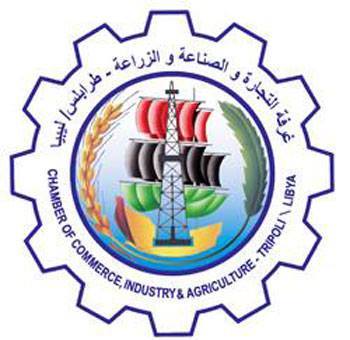The Central Bank of Libya (CBL) was criticised for failing to participate in a workshop entitled “Decision-Making and Implementation Meet: A Direct Dialogue between the CBL and the Private Sector” organised by Tripoli Chamber of Commerce at a leading central Tripoli hotel last Thursday (9 October).
The workshop addressed several important topics, most notably:
- The new CBL monetary decisions and their implementation mechanisms.
- The challenges facing import and export operations.
- Introducing the systems of the Libya Trade Network in the field of promoting and facilitating international trade (PTS-ACI-LTFU).
- Customs procedures through ports.
- The requirements of international trade through digital systems.
Economy Ministry working to address business sector problems
In his address to the workshop, Mohamed Hwej, the Minister of Economy and Trade, stressed that the Ministry, under the directives of the Prime Minister, is working to address the challenges and problems facing business owners and commercial companies in the fields of import, export and dealing with the local market.
Partially responding to criticism that newly implemented procedures delay business, imports and trade, Hwej revealed that Libya has received international warnings regarding money laundering crimes linked to credits and financial transfers in foreign currency abroad.
He said that two major countries – which he did not name – had sent warning letters to the Libyan government about the possibility of the country being subject to strict international sanctions if financial violations in foreign transfers continue.
CBL could be exposed to international sanctions
The minister added that Libya’s financial situation has become extremely embarrassing because of these actions, warning that their continuation could expose the CBL to international sanctions, especially if a foreign company is appointed to control the foreign transfer mechanism.
Prevent smuggling of hard currency abroad through documentary credits
He emphasised the need to activate the pre-registration system for goods and merchandise with the Customs Authority before the import process, as this procedure will enhance greater control over imports to Libya, consolidate integrity and transparency, and prevent the smuggling of hard currency abroad through documentary credits.
Recommendations of the workshop to be referred to the PM
The Tripoli Chamber of Commerce, on the other hand, directed that the results and recommendations of this workshop be referred to the Tripoli based Libyan Prime Minister in the form of a comprehensive report.
Call on CBL to help small traders transfer payments abroad easier
For his part, the President of the Tripoli Chamber of Commerce, stressed the need to address the CBL through the competent authorities to activate banking instruments, in a way that contributes to facilitating and organizing supply operations through official banking channels, enabling small traders to make direct transfers quickly and easily, in addition to supporting monetary and trade policies and limiting the activity of speculators in the parallel market.
Call for direct communications channels with Chambers and CBL
He also pointed out the importance of opening direct channels of communication between the chambers of commerce and the Central Bank of Libya to clarify the procedures facing businessmen and traders with regard to the processes of opening credits and bank transfers.
Tripoli Chamber said the meeting was an important opportunity for businesses to raise many questions and inquiries that needed clarification from the CBL, especially with regard to the implementation of the recent decisions regulating imports through the banking system.
In this context, the President of the Tripoli Chamber of Commerce expressed his surprise that the CBL did not attend the workshop despite being invited, stressing that the presence of the bank’s representatives would have provided a direct opportunity to interact with the members of the Chambers of Commerce and the private sector on the mechanisms of implementing these decisions.
The activities of the workshop were also attended by the Chairman of the Board of Directors of the Libya Trade Network, Director of the Technical Department of the General Administration of Customs, Director General of the Union of Chambers of Commerce, Industry and Agriculture, President of the Zliten Chamber of Commerce, in addition to several business owners, representatives of companies affiliated with the Chambers of Commerce, and managers of the competent departments of the relevant authorities.
Tripoli Chamber of Commerce said the workshop comes within the framework of attempting to strengthen dialogue between state institutions and the private sector, and building bridges of trust and integration between parties concerned with economic and commercial affairs in Libya.









